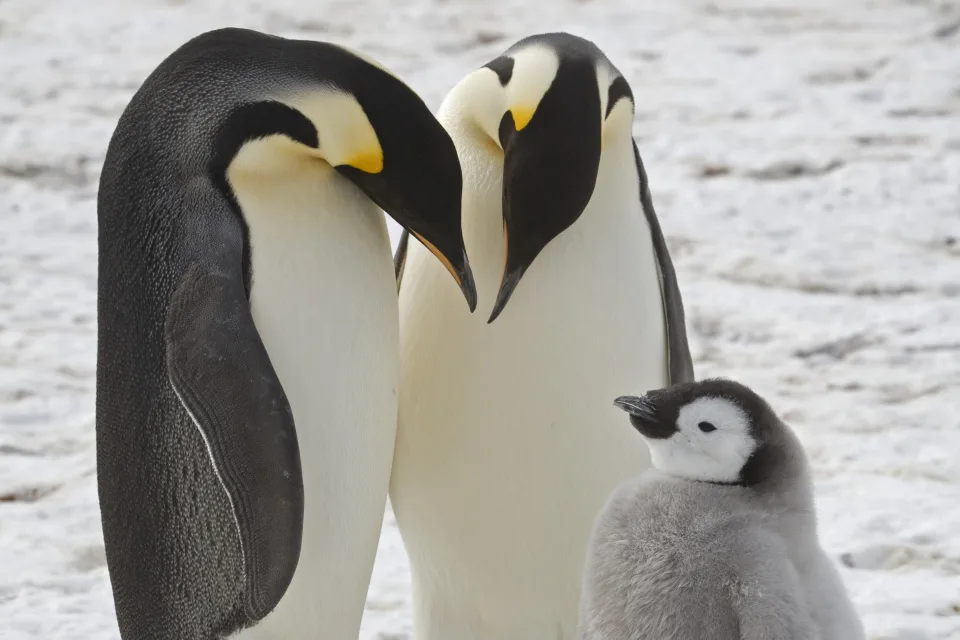Scientists spot previously unknown colonies of emperor penguins in Antarctica
Scientists currently know of 66 emperor penguin colonies. The newly spotted colonies don't greatly change overall population estimates. Emperor penguins, considered “near threatened” with extinction, are the world's largest penguins. They raise their chicks in Antarctic winter. Satellite images have helped to locate four previously unknown colonies of emperor penguins in the Antarctic previously unknown to science. One of the colonies has over 5000 members. During winter, colonies of thousands of emperor penguins live and breed on the frozen sea ice clinging to the Antarctic coast. Now, melting ice is forcing emperor penguin colonies to relocate to more stable breeding grounds, and researchers regularly monitor where they move using satellite photos. Against the bright white snow, the hordes of penguins, and the guano stains they leave behind, stand out as brown splotches on the landscape.
Three of the colonies researchers spotted on the Brunt ice shelf were small, fewer than 100 birds. But the fourth group, a colony that scientists thought had vanished, had more than 5000 birds. This brings the total number of known emperor penguin colonies in Antarctica to 66, but the slight uptick doesn’t tell the full story, says Peter Fretwell at the British Antarctic Survey. “It’s quite ironic that we are still finding colonies as the populations start to be affected by climate change,” he says. Last year, at least 19 penguin colonies had total breeding failures due to ice melt, causing a mass die-off of chicks. Some predict the species could be extinct by the end of the century. “The losses we are seeing through climate change probably outweigh any population gain we get by finding new colonies,” says Fretwell.
It's unclear if any of the newly identified colonies could be breakaway groups from other larger colonies, said Daniel Zitterbart, a penguin researcher at the Woods Hole Oceanographic Institution, who was not involved in the study. But it's clear the breeding sites are in flux and a warming world means more "penguins will be on the move,” he said.
.jpg)
.jpg)



.jpg)
.jpg)
.jpg)
.jpg)
.jpg)

.jpg)
.jpg)
.jpg)
.jpg)
No comments:
Post a Comment